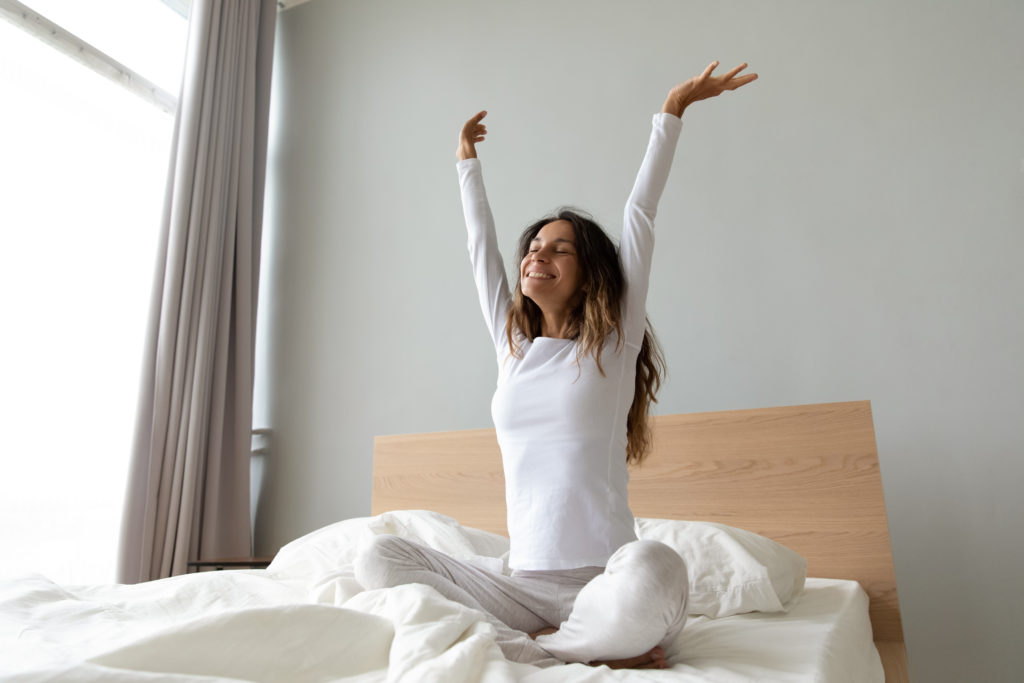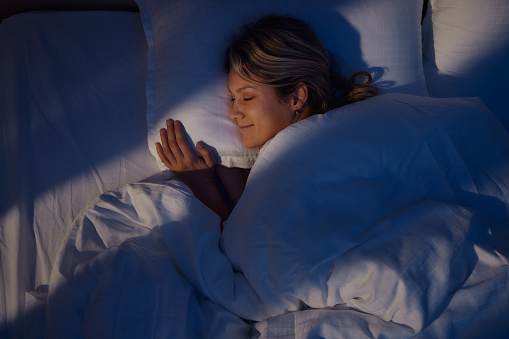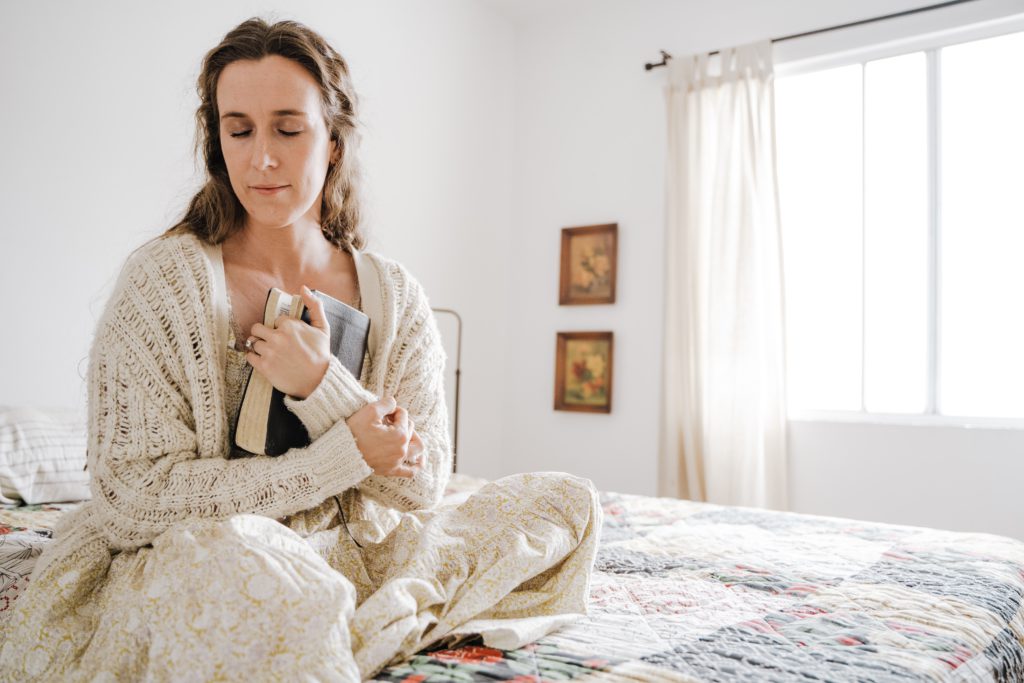Having trouble getting a good night’s sleep? Download Abide for Christian sleep meditations that use calming techniques and Scripture verses framed in calming stories to lull you into a peaceful slumber.
When I reached my mid-fifties, my sleep patterns changed. For five decades, I had enjoyed a six o’clock morning wakeup routine. Suddenly, I was wide awake at the still-dark hour of 4 a.m. In addition, if I woke in the middle of the night, I struggled to fall back to sleep. What was wrong? I wondered if a connection existed between my disrupted sleep and aging.
It turns out a connection does exist.
The Connection Between Sleep and Aging
The wrinkles on our skin remind us that things change when we get older. And it’s not just our skin. As our brains age, we may experience a disruption to our body’s internal clock—our circadian rhythm. Circadian rhythms function in the background of our brains in 24-hour cycles, including the task of telling our bodies when to be awake and asleep.
In an article in Science Digest, researchers discovered older adults demonstrated less time in deep sleep, more fragmented rest, an increased difficulty in falling asleep, and earlier morning wake-up times. The research confirms what we know to be true: sleep and aging are connected.
Don’t despair. Here are seven tips for maintaining good sleep.
7 Tips for Maintaining Good Sleep
1. Reduce Screen Time
According to an article in Forbes, the amount of time people spend on screens negatively affects their sleep. Not only do screens produce sleep-disrupting blue light, scrolling can also increase stress levels due to overstimulation.
In the book Sacred Rest, author Saundra Dalton-Smith, MD suggests unplugging at least thirty minutes before bed and spending that time “in restful activities like stretching, praying, meditating, or simply being still.” (Saundra Dalton-Smith, MD, Sacred Rest: Recover Your Life, Renew Your Energy, Restore Your Sanity [New York and Nashville: Faith Words, 2017], 94.) She refers to this unplugging as “focused ceasing.” (ibid. pg.4.)
2. Exercise
Time in the gym or walking in the park tires out your body and increases your need for sleep, for a double win. Exercise benefits your heart and your closing eyelids! As we age, keeping our bodies moving becomes even more important, regardless of how we sleep at night.

3. Use the Sunlight
Your brain pays attention to sunlight to help maintain a balanced circadian rhythm. Taking time outside, especially in the morning, tells your brain it is time to start the day. Sunlight has lots of other health benefits as well. As you step outside, why not voice a prayer as recommended in Psalm 5:3 NIV:
“In the morning, Lord, you hear my voice; in the morning I lay my requests before you and wait expectantly.”
4. Avoid Substances That Disrupt Sleep
Experts recommend limiting caffeine, alcohol, smoking, and consuming large meals too close to bedtime. The Sleep Foundation advises eating 4 hours before bedtime to ensure restful slumber.
5. Limit Naps
Napping is often necessary as we age to maintain energy throughout the day. But the benefits can backfire if you nap too long or too late, hampering your ability to sleep in the evening.
6. Establish a Routine Sleep Schedule
As boring as it may sound, your body will thank you if you maintain a regular sleep schedule, which means going to bed and waking up at a similar time each day. The routine tells your body, Oh, it’s time to be tired now or It’s time to be bright-eyed and awake.
7. Consciously Turn Your Concerns Over to God
Holding onto worries can keep you in an overthinking, wide awake spiral. Instead, “Cast all your anxiety on him because he cares for you” (1 Peter 5:7 NIV).
God created our bodies to need rest and nightly sleep. As we age, our sleep patterns may change, especially the circadian rhythms in our brains. But you can still enjoy a good night of rest. Reducing screen time, exercising, stepping outside in the sunlight, limiting certain substances, taking only short naps, establishing a routine sleep schedule, and giving our worries to God all help you find good rest when sleep and aging don’t cooperate.
Listen now to a short segment of this sleep story from Abide based on Luke 10:41-42. Experience how a sleep story designed to help you turn your worries over to God can help you when getting good sleep and aging become an issue.
Let Abide be your daily companion as you deal with the connection between sleep and aging. Our 400+ Bible-based sleep stories all exist to help you fall asleep quickly, rest well, and experience God’s peace. Download the app and start a premium subscription. This will gain you access to our entire library of content. Use this link for 25% off.
Lynne is the author of Under a Desert Sky: Redefining Hope, Beauty, and Faith in the Hardest Places and a contributing author on multiple books for Guideposts. She and her husband love hiking in the desert near their home in Chandler, Arizona.








